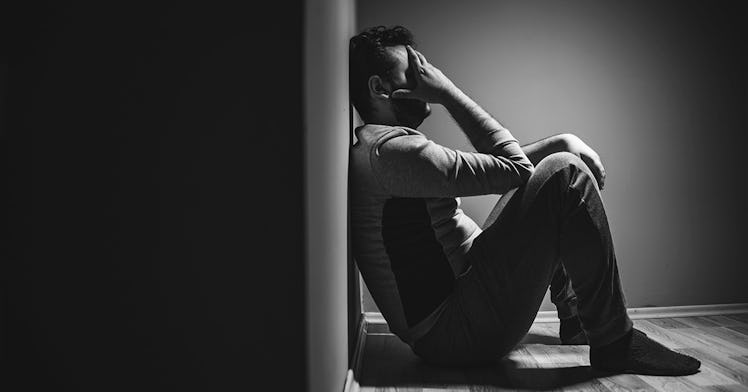The Grief of Pregnancy Loss Does Not Know Gender
In the wake of Chrissy Teigan and John Legend's pregnancy loss, both will need love and healing

This morning Chrissy Teigan and John Legend shared that they had lost their baby after pregnancy complications. Teigan who had been admitted to the hospital last weekend due to bleeding shared, “We were never able to stop the bleeding and give our baby the fluids he needed, despite bags and bags of blood transfusions. It wasn’t enough.”
Teigan and Legend said they had named their baby Jack. The announcement of the loss was accompanied by photos of Teigan and Legend grieving in the hospital.
It’s clear that the couple’s public grief made some uncomfortable. Teigan’s announcement on Twitter was littered with replies from people criticizing the post and the decision to include photos.
As egregious as the critical comment towards Teigan and Legend are, they should not be particularly surprising. Discussing pregnancy loss is in America remains incredibly taboo. Couples who experience miscarriage or stillbirth (which is the technical term for pregnancy loss after 20 weeks) commonly grieve in private and rarely share their pain with people outside their immediate circle. The grief of pregnancy loss is often experienced in isolation and sometimes gender roles can make that isolation even more profound and damaging — particularly for men.
How Men Experience Pregnancy Loss
I was alone in Portland, Oregon, when my wife called from Chicago to tell me she had miscarried. She was there visiting for her cousin’s wedding shower when it happened. The loss had been painful and abrupt, but she was dealing with it. Her sisters, her mother, and an extended family of women were with her. They knew. They held her close. It was our first pregnancy. We were in our mid-30s.
My first concern was obviously for my wife. She had bled. She had experienced the pain and the subsequent feeling of physical loss I could not understand. She was dealing with a flood of hormones that would only exacerbate the issue. My masculine inclinations towards protection kicked into overdrive. I wanted more than anything to hold her and make her safe and let her cry in my arms. But we were separated by over a thousand miles.
I must have said I was sorry a dozen times, though it was no one’s fault. At the same time, I tried to soothe her acute sense of guilt. And more than anything, I told her I loved her. When we hung up, I sat in the silence, unsure of what to do next. It didn’t seem right to call and tell anyone. It didn’t feel like my place. Pregnancy to me felt like my wife’s domain, which gave her the exclusive right to disclosure.
Did I have the right to feel sad? Did I have the right to grieve? What had I really lost, other than a hope or an idea? I never sought to answer these questions. I internalized them and focused my resolve on supporting my wife. I’m not sure anyone ever asked me if I was okay. I never told anyone that I wasn’t.
Research shows that the way I dealt with our pregnancy loss (or actually failed to) is a common experience for men. A 2017 meta-analysis of 29 studies, conducted by Australian researchers and published in the journal BMC Pregnancy and Childbirth found that the most common experience for men after pregnancy loss is immediate pressure to offer support to female partners sometimes at the expense of their own well-being. Additionally, researchers found that men often experience grief over the loss of their anticipated role as a father, but the lack of social recognition of related to pregnancy loss can create barriers in accessing help for both men themselves and the couple.
Finding Balance in the Grief of Pregnancy Loss
Teigan and Legend have made the choice to grieve their loss publicly and that decision is both bold and commendable. Stillbirth and miscarriages are part of the human experience that could benefit from coming out of the shadows. But it’s important that as we grieve with the couple, both are given support to heal.
We’ve heard little from Legend, who seems to have stepped back so his wife can lead and be centered. There is absolutely nothing wrong with that. Her recovery should absolutely be the focus. Her body experienced trauma. Her body has to heal.
But Legend has healing to do as well. And it’s not always easy for men to acknowledge they need healing. American masculinity is so centered on individualism and strength, it can feel deeply uncomfortable to admit vulnerability and a need for support.
Again, research points to a path towards healing for men who have experienced pregnancy loss. Another study from Australian researchers published in 2019 suggest that first and foremost men need recognition of their pain and grief after pregnancy loss. With that recognition, they should have options for support based on their individual needs. For some men that might be talking with a trusted friend; for others, it might mean talk therapy or give back through volunteerism or charity. No matter how men choose to move forward, it all starts with being given an understanding that their grief is valid too.
Hopefully, those around Teigen and Legend will recognize that they both need to feel the support and love of their peers. The burden of pregnancy loss should be shared, like every burden the family faces. The road ahead will be long and difficult for everyone, their children included. Communicating needs and talking through feelings of guilt, helplessness and pain will be necessary for recovery.
But recovery will come.